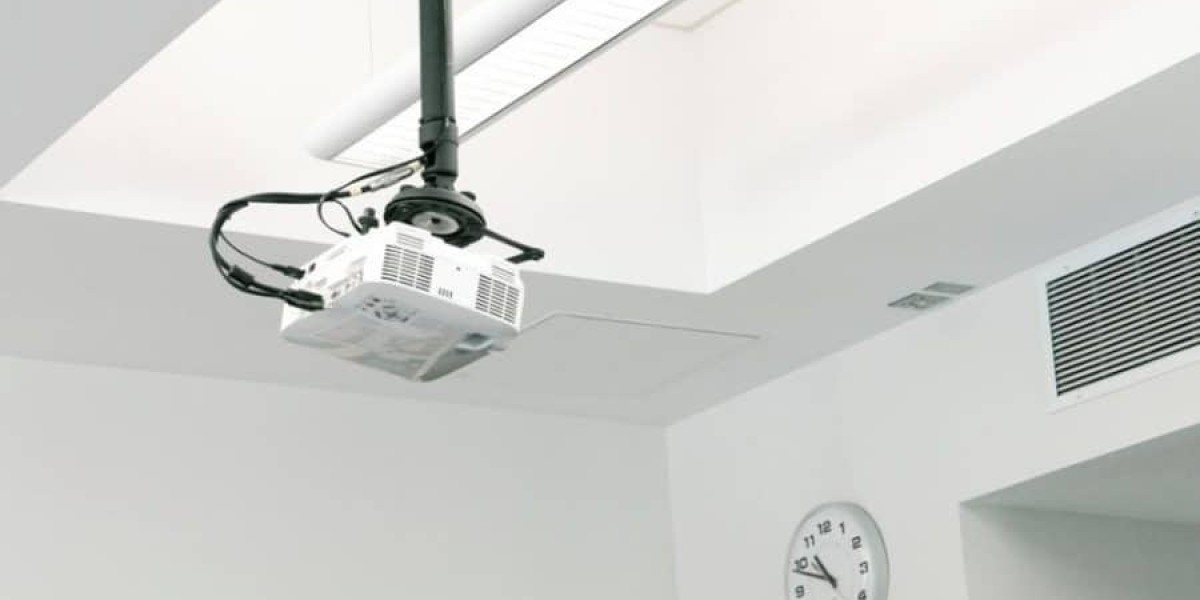Choosing between a white and black projector screen can significantly impact your viewing experience. Both options have their strengths, but determining which one provides the best image quality depends on factors such as ambient light, contrast levels, and personal preference. The debate over the "White vs Black Projector Screen" has gained traction as home theaters and professional presentations continue to evolve. Understanding the differences between the two can help you make an informed decision for the best cinematic experience.
Understanding White Projector Screens
White projector screens have been the standard choice for decades. They offer excellent color accuracy and brightness, making them a popular option for business presentations, classrooms, and home theaters. White screens are designed to reflect light uniformly, ensuring a balanced and vibrant image.
One of the main advantages of a white projector screen is its ability to display colors in their truest form. This makes it ideal for environments where color accuracy is essential. Additionally, white screens work well with high-lumen projectors, delivering bright and clear images even in moderately lit rooms.
However, white screens are highly reflective, which can be a disadvantage in rooms with uncontrolled ambient light. They struggle with black levels and contrast, leading to washed-out images in bright settings. This makes them less suitable for environments where deep blacks and high contrast are desired.
Understanding Black Projector Screens
Black projector screens are a newer innovation designed to enhance contrast and black levels. They absorb ambient light more effectively than white screens, making them an excellent choice for rooms with some degree of lighting. This absorption property allows black screens to produce deeper blacks, richer colors, and an overall improved contrast ratio.
Another significant advantage of black projector screens is their ability to reduce glare and reflections. This ensures that images appear more defined, even in non-darkened rooms. If you're setting up a home theater in a living room or a space with windows, a black screen can help maintain image quality without requiring complete darkness.
While black screens excel in contrast and ambient light rejection, they tend to be less bright than white screens. To counter this, they require a high-lumen projector to ensure vivid colors and sharp details. Additionally, black screens are often more expensive, making them a premium choice for those who prioritize image quality over budget.
Which One Provides the Best Image Quality?
The choice between a white and black projector screen depends on several factors, including the viewing environment, projector specifications, and personal preferences. If you prioritize brightness and color accuracy, a white screen is the better choice, especially in controlled lighting conditions. It works well in professional settings where detailed presentations and color precision are crucial.
On the other hand, if contrast and deep blacks are your priority, a black screen will provide a superior image quality, particularly in rooms with some ambient light. The enhanced contrast makes dark scenes more immersive, creating a more theater-like experience.
Both options have their ideal use cases. White screens are perfect for brightly lit rooms and professional settings, while black screens excel in home theaters and entertainment spaces with moderate lighting.
Factors to Consider When Choosing a Projector Screen
Several factors should influence your decision when selecting a projector screen. Room lighting plays a crucial role in determining which screen will work best. If your room has a lot of natural light, a black projector screen will help maintain image clarity. However, if you can fully control the lighting, a white screen might be a more affordable and versatile choice.
Budget considerations also come into play. White projector screens are more widely available and generally cost less than black screens. If you're looking for an affordable solution without compromising image quality, a white screen may be the best option. However, if you're willing to invest in premium contrast and black level performance, a black screen is worth considering.
Maintenance and Longevity
Both white and black projector screens require proper maintenance to retain their image quality over time. White screens tend to show dust, stains, and marks more easily, requiring frequent cleaning. On the other hand, black screens are less prone to visible dirt but can still accumulate dust, which may affect performance.
The material quality of the screen also impacts longevity. Investing in a high-quality screen ensures durability and consistent image quality. Additionally, factors like screen tension and mounting options can influence long-term performance, so it's essential to choose a screen that fits your setup and usage requirements.
FAQs
Is a black projector screen better than a white one?
A black projector screen is better in terms of contrast and black levels, making it ideal for rooms with ambient light. However, a white projector screen provides better brightness and color accuracy, especially in controlled lighting environments.
Can I use a black screen with any projector?
Yes, but black screens perform best with high-lumen projectors to ensure bright and clear images. If your projector has low brightness, a white screen may be a better option.
Do black projector screens work in dark rooms?
Yes, but they are designed primarily for environments with some ambient light. In completely dark rooms, both white and black screens can deliver excellent image quality, but black screens will still provide better contrast.
Are black projector screens more expensive?
Generally, yes. Black projector screens are considered a premium option due to their ability to enhance contrast and reduce reflections, making them more costly than traditional white screens.
Conclusion When it comes to choosing between a "White vs Black Projector Screen," the best option depends on your viewing environment and priorities. White screens excel in brightness and color accuracy, making them suitable for controlled lighting conditions. Black screens, on the other hand, offer superior contrast and ambient light rejection, making them ideal for rooms with some light interference. Understanding these differences will help you select the right screen to enhance your viewing experience, whether for professional presentations or immersive home theater setups.









